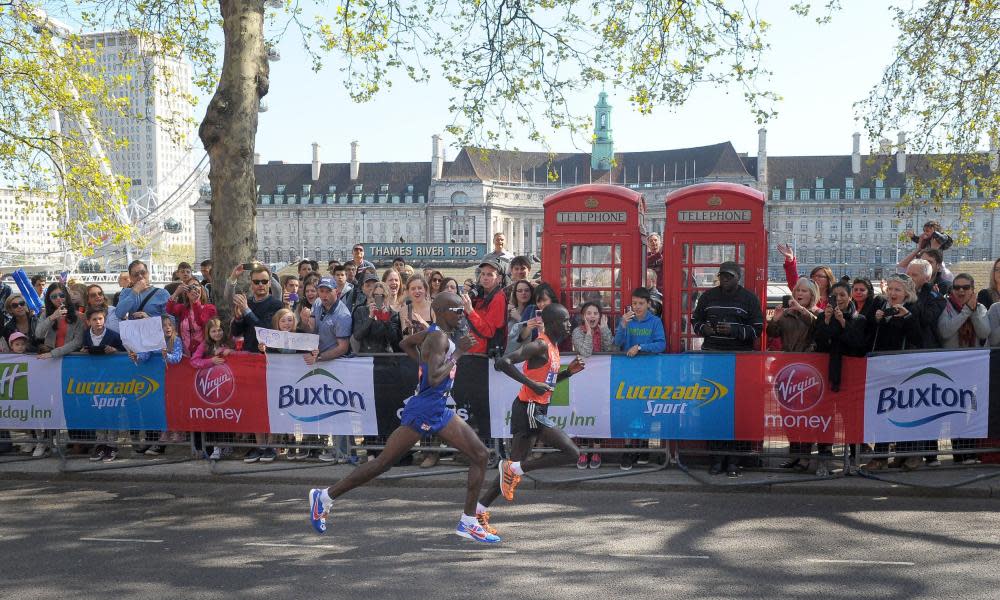London Marathon could be biggest ever despite heat worries

Organisers of the London Marathon are hoping to break participation and fundraising records, despite predictions that Sunday’s race could be one of the hottest ever.
Weather forecasts for raceday have varied from 21C to 23C. The marathon’s previous record temperature was 22.2C, an unusually high temperature for April.
Despite the heat, organisers are expecting more than 40,000 finishers, beating last year’s 39,487. Katie Price, who has previously said she will run dressed as a lung for the British Lung Foundation, chef Gordon Ramsay and former Great British Break Off contestant Selasi Gbormittah are among the celebrities taking part. Organisers also believe they are on target to break the world record for the most funds raised by a single-day event for the 12th consecutive year. In 2017, runners raised £61.5m.
“Our contingency plans for the forecast hot weather on Sunday include increasing the supply of water to all drinks stations to enable runners to douse themselves with water, increasing the number of showers on the route and increasing the supply of ice to first aid stations,” said Hugh Brasher, the event director.
Brasher advised against aiming for personal best times without prior training in such temperatures. “Most importantly, runners should adjust their goal for Sunday and plan to run at a slower pace,” he said. “If they were planning to run in fancy dress, they should think carefully if that is appropriate.”
Alison Coleman-Cross and her niece Tanya Martin are apprehensive about running their first marathon. “I’m not good with the heat,” said Coleman-Cross. “I’m trying to block it out because the stress isn’t good for my muscles.”
Neither Coleman-Cross or Martin has been able to train since the weekend before Easter, due to a chest infection and a knee injury respectively.
“If you’ve been training in [heat] your body gets used to it,” said Martin. “We have had snow and ice. Our last run was in zero degrees.”
Elite athletes are equally susceptible to hot weather. Scotland’s Callum Hawkins looked set for gold in the Commonwealth Games marathon last Sunday, but collapsed near the finish in 27C conditions on Australia’s Gold Coast.
In 2007, the last time the London Marathon was run in 22.2C heat, 600 people failed to complete the course; one participant died from drinking too much water, and organisers attracted criticism for water shortages at some points along the route.
“There was a raft of learnings from 2007,” said Brasher, who explained that the directors of the world’s biggest marathons learned from each other . “There’s been a sea change of things we’ve done since,” he added.
Sean Jones, a barrister running for Save the Children, said he was not worried by the weather forecasts. He has run marathons, including one in Milan, where temperatures were higher than those expected in London.
“I’m running in my barrister’s wig and gown,” he said. “I will still be wearing them despite the weather. There are two reasons: most of my sponsors are lawyers and I couldn’t hope to fend off all those legal actions; and the costume is my excuse for moving slowly.”

 Yahoo News
Yahoo News 